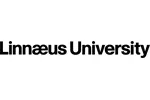We're moving! This site will be relocating to goingto.university in 2026. Please update your bookmarks to the new address.


| The award | How you will study | Study duration | Course start | Domestic course fees | International course fees |
|---|---|---|---|---|---|
| Master Degree | Full-time | 2 years | August | SEK 54900 per semester | SEK 54900 per semester |
This Master's programme in Tourism and Sustainability takes on the challenges that climate change and sustainability issues bring about for the tourism and travel industry. As a truly global business with ties all across the globe, tourism links together the most remote places in a gigantic web of relations in environment, politics, geography, economy, the social and the cultural.
As a globally leading business industry, the tourism industry has to take responsibility for the planet's limitations. Tourism and Sustainability provides you with an insight into the paramount challenges that face the tourism industry's development and our world. You will acquire skills that enable you to grapple with important and often contradictory trajectories of tourism and its sustainable future. This can be, for instance, how tourists often seek the pristine, the authentic or the genuine, while in doing so also burden destinations and travel system through unsustainable patterns of practices and carbon dioxide emissions. On a larger scale, it is not only the tourism industry that is under threat but also the world as we know it. Therefore, the most central question we ask ourselves on the Master's programme in Tourism and Sustainability is - how do we create the tourism industry of the future?
On the first year, you are introduced to tourism as an academic subject with ethics, justice, social, environmental and historical perspectives. The course Tourism in the Anthropocene addresses tourism in a new geological era where the living conditions of humanity challenge the planetary boundaries and, to an ever increasing extent, determine the future of our planet. The courses Business models for sustainability, Evaluation and planning of tourism sustainability, Developing sustainable destinations, and Environmental economics, focus on finding solutions and viable paths forward. On the second year, you will get thorough methodological training and the opportunity to carry out an internship or study elective courses, before the final semester's degree project (30 credits).
General entry requirement for studies at second cycle and specific entry requirements: - Bachelor's degree in tourism studies or in business administration or in another social science main field of study or equivalent or - Bachelor's degree in a natural science main field with at least 30 credits in social science, business administration or equivalent and - English B/6 or equivalent.
Below are some suggested courses at other providers that you may also be interested in:
Bachelor in Transportation Design Bachelor Degree
IAAD. - Institute of Applied Art and Design
Find out moreBachelor's Degree (BSc) (Hons.) in Digital Business BSc (Hons)
OPIT - Open Institute of Technology
Find out moreIf you do not meet the entry requirements for this course then consider one of these postgraduate preparation courses from another institution:
Graduate Diploma of Engineering (Civil: Structural)
Engineering Institute of Technology
Find out moreGraduate Diploma of Technology (Software Engineering) (FedUniv at IIBIT)
International Institute of Business & Information Technology (IIBIT)
Find out moreThere are 46 other courses listed from Linnaeus University. A selection of these are displayed below:
Business Process Control and Supply Chain Management - Frontiers in Logistics & Supply Chain Management Master Degree
Linnaeus University
Find out moreBusiness Process Control and Supply Chain Management - Frontiers in Management Accounting & Process-based Control Master Degree
Linnaeus University
Find out moreJoin the StudyLink email list and never miss a chance to turn your study abroad dreams into reality!
